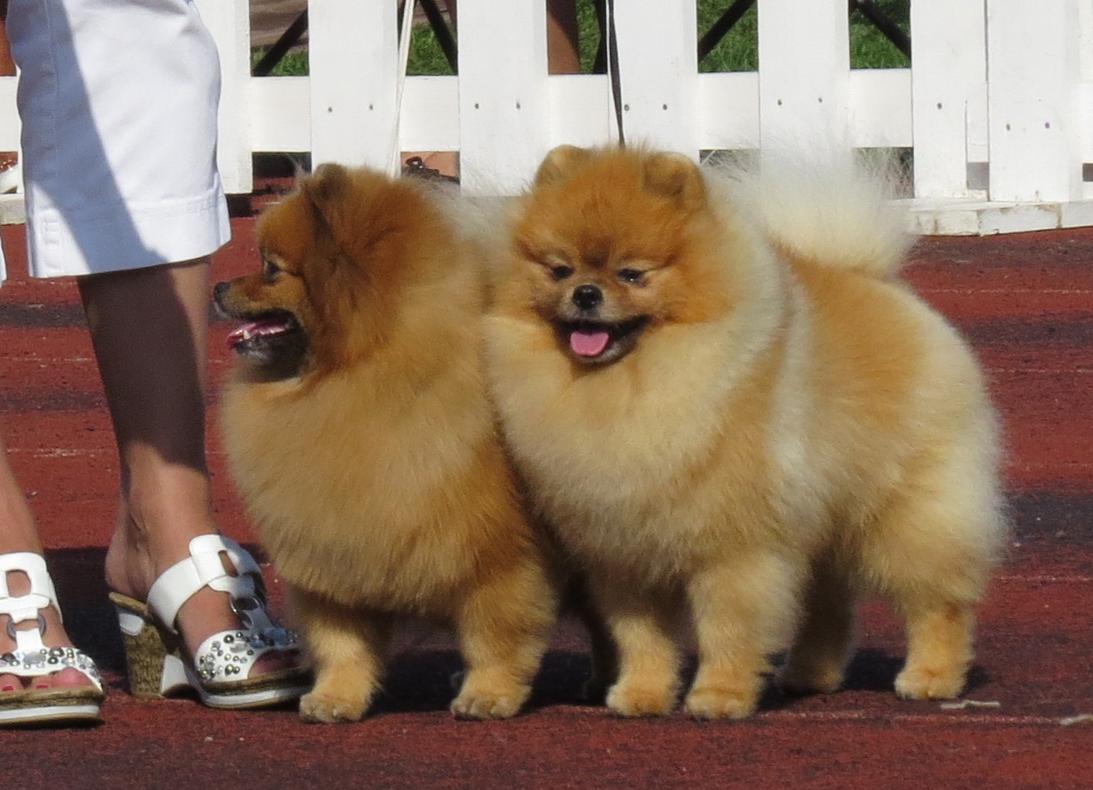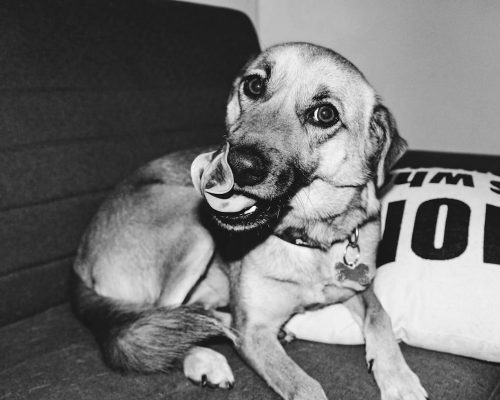The Pomeranian is a small, compact dog with a striking appearance and a vibrant personality. They are known for their fluffy double coat, fox-like face, and energetic disposition, the Pomeranian is a popular toy breed loved by dog enthusiasts around the world.
Despite their small size, these dogs have a bold personality that makes them stand out in any setting. Whether you’re a first-time dog owner or an experienced pet parent, the Pomeranian is an excellent choice due to its affectionate nature and engaging temperament.
Table of Contents
ToggleHistorical Background of Pomeranians
The Pomeranian breed’s origins can be traced back to the Pomerania region, which is now part of modern-day Poland and Germany.
These dogs were initially much larger, bred as sled dogs to pull carts and herd livestock in cold climates. Over time, the Pomeranian was selectively bred to be smaller, eventually becoming the popular companion dog that we know today.
Queen Victoria of England was instrumental in popularizing the breed during the 19th century. After encountering a particularly small Pomeranian on her travels to Italy, she fell in love with the breed and began breeding them on her estate.
Her efforts, along with those of other European aristocrats, helped to elevate the Pomeranian’s status, turning it from a working dog into a fashionable lapdog for royalty.
The Pomeranian Breed Characteristics
Pomeranians are known for their gorgeous, fluffy double coats, which are one of their most distinctive features. The outer coat is long, straight, and slightly harsh, while the undercoat is dense and soft, designed to insulate the dog from cold weather.
Their coats come in a wide range of colors, including orange, black, white, cream, sable, blue, and even merle, with various patterns that make each dog unique.
Beyond their coat, Pomeranians have a wedge-shaped head with pointed ears, a distinctive ruff of fur around their neck, and large, dark eyes that give them a curious and intelligent look.
They have a compact, sturdy build, and despite their small stature, they carry themselves with a confident, almost regal, demeanor.
Size and Weight of Pomeranians
Pomeranians are considered a toy breed, making them one of the smallest dog breeds. Adult Pomeranians typically stand between 6 to 7 inches tall at the shoulder and weigh between 3 to 7 pounds.
While their size can vary slightly between males and females, the difference is usually minimal. Despite their small size, Pomeranians often appear larger due to their fluffy coats, which can make them seem almost disproportionate.
Their small size allows them to adapt well to apartment living and smaller homes, but it’s essential to remember that Pomeranians still need daily exercise and mental stimulation to remain happy and healthy.
While they may not require the space that larger breeds need, they still thrive in environments where they are the center of attention.
Pomeranian Temperament and Personality
Pomeranians are known for their bold, energetic personalities. Though they may be small in size, their temperament is anything but diminutive.
Often described as “big dogs in small bodies,” Pomeranians are confident, curious, and alert. They are known for being lively and playful, always on the lookout for new adventures and opportunities for fun.
Despite their spirited nature, Pomeranians are affectionate dogs that bond closely with their owners. They thrive on human companionship and attention, often seeking to be the center of attention in any situation.
Pomeranians are also highly intelligent and quick to learn, which makes training relatively easy, though they can sometimes display a stubborn streak.
These dogs can be vocal, often barking at anything that catches their attention, making them excellent watchdogs. However, their barking can become excessive if not properly managed.
Grooming and Maintenance Needs
The Pomeranian’s lush double coat is undeniably beautiful but requires regular grooming to maintain its appearance and health.
It is essential to brush a Pomeranian’s coat several times a week to prevent mats and tangles, especially around the neck, chest, and underarms.
During shedding seasons—typically spring and fall—you may need to increase grooming frequency to manage the heavy shedding.
In addition to brushing, Pomeranians should be bathed regularly, about once a month, using a gentle dog shampoo. This helps to keep their coat clean, shiny, and free from oils that could cause skin irritation.
Regular grooming also includes nail trimming, ear cleaning, and teeth brushing. Dental care is particularly important for Pomeranians, as they are prone to dental issues like gum disease and tooth loss.
Health Concerns Specific to Pomeranians
Pomeranians are generally healthy dogs, but like all breeds, they are prone to certain health problems. One of the most common issues is dental disease, as their small mouths can be prone to plaque buildup. Regular tooth brushing and professional dental cleanings can help prevent these issues.
Another health concern for Pomeranians is patellar luxation, a condition where the kneecap slips out of place, causing discomfort and difficulty walking.
In some cases, surgery may be required to correct this condition. Pomeranians are also prone to tracheal collapse, a condition that affects the windpipe and can cause breathing difficulties. Owners should be aware of these conditions and schedule regular veterinary checkups to detect any issues early.
Additionally, Pomeranians are susceptible to eye problems, such as cataracts and retinal disorders, as they age. Ensuring that your Pomeranian receives proper nutrition, regular checkups, and early intervention for health problems can help them live a long and happy life.
Lifespan and Longevity
Pomeranians typically live between 12 to 16 years, though some may live even longer with proper care. Their lifespan can be influenced by factors such as genetics, diet, exercise, and overall health management.
Regular visits to the veterinarian, a balanced diet, and keeping them at a healthy weight are all crucial for ensuring a long, happy life.
Providing your Pomeranian with a low-stress environment, a proper exercise routine, and sufficient mental stimulation can also contribute to a longer life.
Regular vaccinations, flea and tick prevention, and dental care all play an important role in maintaining their health throughout their lifespan.
Exercise and Activity Requirements
Despite their small size, Pomeranians are energetic and active dogs that need daily exercise to stay healthy and happy.
They love to play and interact with their owners, and daily walks, playtime, and interactive games are essential to meet their activity needs.
Pomeranians thrive on mental stimulation, so providing them with toys and puzzles to solve is just as important as physical exercise.
Though they are not as demanding in terms of physical activity as larger breeds, Pomeranians need at least 30 to 60 minutes of exercise each day.
Furthermore, they also enjoy indoor play, and their agility and intelligence make them ideal candidates for training and dog sports such as obedience or agility trials.
Without sufficient exercise and mental stimulation, Pomeranians can become bored, which may lead to destructive behavior.
Training a Pomeranian
Training a Pomeranian can be a rewarding experience, as they are intelligent and eager to please. However, their small size and strong personality can sometimes make them a bit stubborn. Consistency, patience, and positive reinforcement are essential when training a Pomeranian.
Basic obedience commands, such as sit, stay, and come, should be taught early. Pomeranians are also highly trainable when it comes to housebreaking, though they may need more frequent bathroom breaks due to their small bladders.
Socialization should also begin early to ensure that your Pomeranian grows up to be well-adjusted and friendly with other pets, people, and different environments.
Crate training can be a useful tool, as it provides your Pomeranian with a safe space while helping with housebreaking.
Positive reinforcement through treats and praise is the best way to encourage good behavior and build a trusting relationship with your dog.
Diet and Nutrition for Pomeranians
A balanced, high-quality diet is crucial to the health and well-being of your Pomeranian. Because they are small, they have higher energy needs than larger dogs, and it is important to provide them with food that is formulated for toy breeds.
Look for dog food that contains high-quality protein, healthy fats, and a mix of vitamins and minerals to support their overall health.
Pomeranians are prone to obesity, so it’s important to avoid overfeeding them and to monitor their weight regularly. Small, frequent meals are ideal, and treats should be given in moderation.
Fresh water should always be available, and owners should consult with their veterinarian to determine the best food and feeding schedule for their individual Pomeranian.
Pomeranian Cost and Financial Considerations
The cost of owning a Pomeranian can vary significantly depending on whether you are purchasing from a breeder or adopting from a shelter.
When purchasing from a breeder, the price of a Pomeranian puppy can range from $500 to $5,000 or more. Prices vary based on factors such as the dog’s pedigree, coat color, and the reputation of the breeder.
It’s important to choose a responsible breeder who tests for common health issues to ensure the well-being of your future pet.
Adopting a Pomeranian from a shelter or rescue organization is often more affordable, with adoption fees typically ranging from $50 to $200.
However, it’s essential to ensure that the dog has been properly vetted and cared for before bringing them into your home.
In addition to the upfront cost of purchasing or adopting a Pomeranian, you should also factor in ongoing expenses such as food, grooming, veterinary care, and any unexpected medical costs that may arise over the course of your dog’s life.
While owning a Pomeranian can be an investment in time, energy, and finances, the joy and companionship they provide make it a rewarding experience.
Conclusion
In conclusion, the Pomeranian is a delightful and captivating breed that offers much more than its fluffy appearance. While they may be small in size, they are large in personality, charm, and affection.
Their playful, intelligent nature makes them a perfect companion for active individuals, families, and those who can dedicate time to their grooming and care needs.






